 To many people, complex oral health care often means the need for a specific type of oral surgery to address a foundation and/or functional issue with their oral health. This might include severe tooth loss, or damage or malformation of the jawbone. However, specialized oral health care can also involve diagnosing and tracking certain, less subtle changes in your oral health. In some cases, these changes may indicate a much more severe concern, such as periodontitis or oral cancer, and oral pathology could be the key to successfully managing with it. (more…)
To many people, complex oral health care often means the need for a specific type of oral surgery to address a foundation and/or functional issue with their oral health. This might include severe tooth loss, or damage or malformation of the jawbone. However, specialized oral health care can also involve diagnosing and tracking certain, less subtle changes in your oral health. In some cases, these changes may indicate a much more severe concern, such as periodontitis or oral cancer, and oral pathology could be the key to successfully managing with it. (more…)
Oral Health Concerns that May Need Surgery
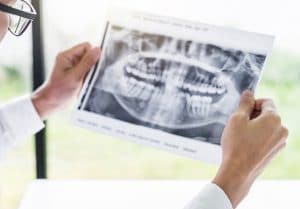 Unlike routine general dental care, not everyone will need oral surgery to repair or rebuild their smiles. However, the need for oral surgery is common for certain types of severe oral health concerns, particularly those that cannot be successfully addressed with general or restorative dental procedures. Today, we examine a few oral health concerns that may need surgery to properly address, and how the right surgical treatment can help you fully recover your good oral health, proper bite function, and much more. (more…)
Unlike routine general dental care, not everyone will need oral surgery to repair or rebuild their smiles. However, the need for oral surgery is common for certain types of severe oral health concerns, particularly those that cannot be successfully addressed with general or restorative dental procedures. Today, we examine a few oral health concerns that may need surgery to properly address, and how the right surgical treatment can help you fully recover your good oral health, proper bite function, and much more. (more…)
A Few Things Dental Implants Can Help You Avoid
 After experiencing tooth loss, you have a lot to consider about the future of your oral health. Therefore, it’s natural to overlook the long-term implications of losing one or more teeth, or what replacing them now will mean for your smile years from now. Some of the greatest advantages of dental implants involve their immediate benefits to the comfort and stability of your restoration. However, many others involve helping you avoid some of the more serious complications to your oral health that can result from tooth loss. (more…)
After experiencing tooth loss, you have a lot to consider about the future of your oral health. Therefore, it’s natural to overlook the long-term implications of losing one or more teeth, or what replacing them now will mean for your smile years from now. Some of the greatest advantages of dental implants involve their immediate benefits to the comfort and stability of your restoration. However, many others involve helping you avoid some of the more serious complications to your oral health that can result from tooth loss. (more…)
Do You Have to Replace an Extracted Wisdom Tooth?
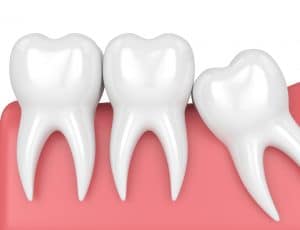 If your wisdom teeth, or third molars, become impacted when they try to erupt along your dental ridge, then extracting them might be the only recourse for saving your smile from the consequences. If you do need wisdom tooth extraction, then you may have several questions about the procedure and what it could mean for your oral health. For example, if you know about tooth loss, then you may realize that many extracted teeth should be replaced, and wonder what’s the best option for replacing them. Fortunately, unlike most other teeth, extracting wisdom teeth doesn’t typically require that you replace them afterward. (more…)
If your wisdom teeth, or third molars, become impacted when they try to erupt along your dental ridge, then extracting them might be the only recourse for saving your smile from the consequences. If you do need wisdom tooth extraction, then you may have several questions about the procedure and what it could mean for your oral health. For example, if you know about tooth loss, then you may realize that many extracted teeth should be replaced, and wonder what’s the best option for replacing them. Fortunately, unlike most other teeth, extracting wisdom teeth doesn’t typically require that you replace them afterward. (more…)
How Common Concerns Can Lead to Tooth Loss
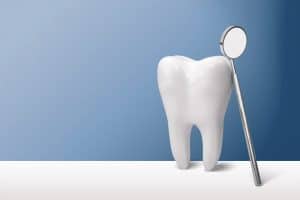 Ideally, your healthy and natural teeth could last for life with proper care and maintenance. However, tooth loss remains a concern for many people, and the specific causes of it can vary greatly. Fortunately, many of these concerns can be addressed and managed before they lead to tooth loss, helping many people avoid it and preserve their natural smiles. If it does occur, you also have highly lifelike options for replacing your lost teeth and rebuilding your smile, such as a custom restoration supported by dental implants. (more…)
Ideally, your healthy and natural teeth could last for life with proper care and maintenance. However, tooth loss remains a concern for many people, and the specific causes of it can vary greatly. Fortunately, many of these concerns can be addressed and managed before they lead to tooth loss, helping many people avoid it and preserve their natural smiles. If it does occur, you also have highly lifelike options for replacing your lost teeth and rebuilding your smile, such as a custom restoration supported by dental implants. (more…)
3 Reasons to Extract Teeth (Besides Impacted Molars)
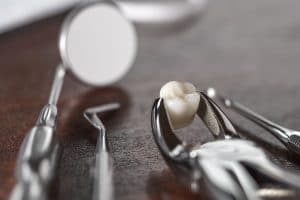 Some forms of dental treatment are more common than others, but even those that are less frequently recommended are often well-known. For example, many people recognize what tooth extraction means, even if they’ve never had to have a tooth extracted. That’s especially true when it comes to extracting wisdom teeth that have become impacted. However, becoming impacted isn’t the reason why a tooth might need to be extracted, and unlike wisdom teeth, the extraction may need to be followed by replacing the tooth. (more…)
Some forms of dental treatment are more common than others, but even those that are less frequently recommended are often well-known. For example, many people recognize what tooth extraction means, even if they’ve never had to have a tooth extracted. That’s especially true when it comes to extracting wisdom teeth that have become impacted. However, becoming impacted isn’t the reason why a tooth might need to be extracted, and unlike wisdom teeth, the extraction may need to be followed by replacing the tooth. (more…)
Should You Consider Jawbone Grafting Before Dental Implants?
 When you’ve experienced tooth loss, rebuilding your smile and restoring your bite function can mean several different things. Most important is the replacement of your lost tooth or teeth. Without them, your bite can’t function properly, as the teeth that remain won’t be able to effectively absorb and distribute your bite’s pressure. However, rebuilding your smile and oral health might also require additional measures, such as replacing the roots of your lost teeth and/or strengthening the foundation of your dental ridge with jawbone grafting. (more…)
When you’ve experienced tooth loss, rebuilding your smile and restoring your bite function can mean several different things. Most important is the replacement of your lost tooth or teeth. Without them, your bite can’t function properly, as the teeth that remain won’t be able to effectively absorb and distribute your bite’s pressure. However, rebuilding your smile and oral health might also require additional measures, such as replacing the roots of your lost teeth and/or strengthening the foundation of your dental ridge with jawbone grafting. (more…)
Things That Might Impact Your Ability to Get Dental Implants
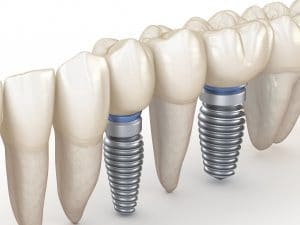 Tooth loss can be a threat to your smile in more ways than you might realize at first. For example, losing teeth roots can have a diminishing effect on several different oral structures, including your dental ridge. Because of these effects, dental implants (which replace your lost teeth roots) are often the best solution for replacing teeth and recovering from tooth loss. The good news is that many patients can qualify for dental implants fairly easily. However, there are some conditions that might affect the ability to receive dental implant posts right away, and these conditions may have to be resolved before you can qualify for dental implant placement. (more…)
Tooth loss can be a threat to your smile in more ways than you might realize at first. For example, losing teeth roots can have a diminishing effect on several different oral structures, including your dental ridge. Because of these effects, dental implants (which replace your lost teeth roots) are often the best solution for replacing teeth and recovering from tooth loss. The good news is that many patients can qualify for dental implants fairly easily. However, there are some conditions that might affect the ability to receive dental implant posts right away, and these conditions may have to be resolved before you can qualify for dental implant placement. (more…)
How Extracting Wisdom Teeth Helps
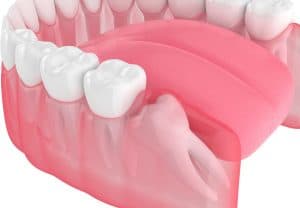 When many people first develop their wisdom teeth (also known as third molars), they may not experience any problems. However, over time, many people can start to develop discomfort in the area around their wisdom teeth, or may notice changes in the integrity and position of their other teeth. For some people, wisdom teeth can become impacted before they become visible, and they may not realize they have wisdom teeth until the symptoms of their impaction become noticeable. Today, we examine how wisdom tooth extraction can help you avoid these problems, or resolve them as soon as possible if they develop. (more…)
When many people first develop their wisdom teeth (also known as third molars), they may not experience any problems. However, over time, many people can start to develop discomfort in the area around their wisdom teeth, or may notice changes in the integrity and position of their other teeth. For some people, wisdom teeth can become impacted before they become visible, and they may not realize they have wisdom teeth until the symptoms of their impaction become noticeable. Today, we examine how wisdom tooth extraction can help you avoid these problems, or resolve them as soon as possible if they develop. (more…)
A Brief Look at Tooth Loss and Oral Health
 Tooth loss isn’t an obscure oral health concern. Most people are aware that it’s a concern, and for the most part, understand what it could mean for their smiles if it occurs. However, there are plenty of things about tooth loss that people don’t fully understand, or are mistaken about, including how it occurs, how it can be prevented, and how it can be successfully addressed with a lifelike dental implant restoration. (more…)
Tooth loss isn’t an obscure oral health concern. Most people are aware that it’s a concern, and for the most part, understand what it could mean for their smiles if it occurs. However, there are plenty of things about tooth loss that people don’t fully understand, or are mistaken about, including how it occurs, how it can be prevented, and how it can be successfully addressed with a lifelike dental implant restoration. (more…)


